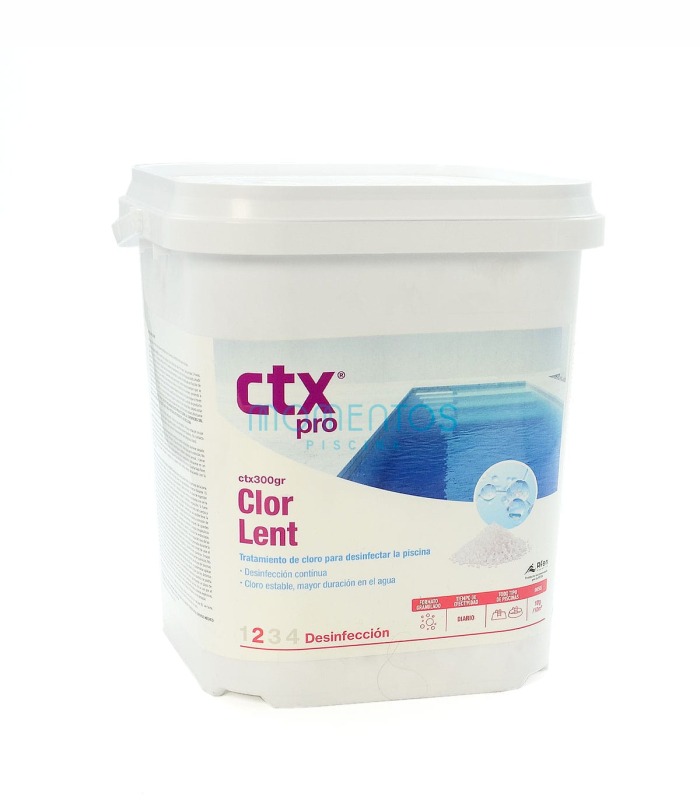




William K. published the 24/03/2024 following an order made on 20/03/2024
Also used and works good.
Anonymous customer published the 16/01/2020 following an order made on 10/01/2020
Alto contenido de cloro para mantener la calidad del agua de la piscina.
Anonymous customer published the 27/09/2017 following an order made on 03/09/2017
el producto está ok, cumple con su funcion
Comment from MomentosPiscina the 02/10/2017
Muchas gracias Giordano por tu confianza y valoración. Un saludo.
Anonymous customer published the 31/07/2017 following an order made on 29/06/2017
Correcto
Comment from MomentosPiscina the 16/08/2017
Muchas gracias Jessica por tu opinión. Para cualquier otra cosa que necesites ¡aquí estamos! Un saludo
Granulated slow chlorine or granulated trichlorine contains 90% of useful chlorine and therefore allows a continuous chlorination avoiding the loss of chlorine due to the effects of the sun. Due to the high concentration of useful chlorine, this allows a slower dosing and therefore more and better effectiveness for longer periods.
Free residual chlorine is water with disinfectant power, it is the amount of chlorine in the water in the form of hypochlorite acid. It is essential to destroy those microorganisms that can be introduced after the water is already disinfected.
The slow dissolving chlorine is used for weekly / daily maintenance of pool water.
1. Check pH level at 7.2-7.6 ppm and regulate the levels.
2. For start-up there are two options
3. For daily / weekly maintenance:
4. Leave the system in filtration for a few hours for the product to dissolve.
IMPORTANT: The initial treatment or shock treatment should be repeated whenever there is a lack of transparency in the pool water.
NOTE: add the product preferably at dusk and without the presence of bathers. Introduce the product in the skimmers or dilute the product in a bucket of water and spread it around the pool.
| Look | Solid granular |
| Color | White |
| Chlorine content useful | 90 % |
| pH (1%) | 2 - 3 |
| Container | 5 Kg |
| Moisture | 0,30% |
| Solubility | 1.2 g/100 ml |
To be able to estimate the amount of granulated chlorine to add to the pool it is important to control the pH and chlorine levels. It is therefore important to test with an analyzer kit at least 2-3 times a week and to regulate the parameters.
It is important to distinguish between free chlorine, residual chlorine and total chlorine.
Less than optimum chlorine will cause bacterial and algae growth resulting in unhygienic and unpleasant conditions. Dosages may vary depending on the number of bathers, sunlight, water temperature or weather conditions.